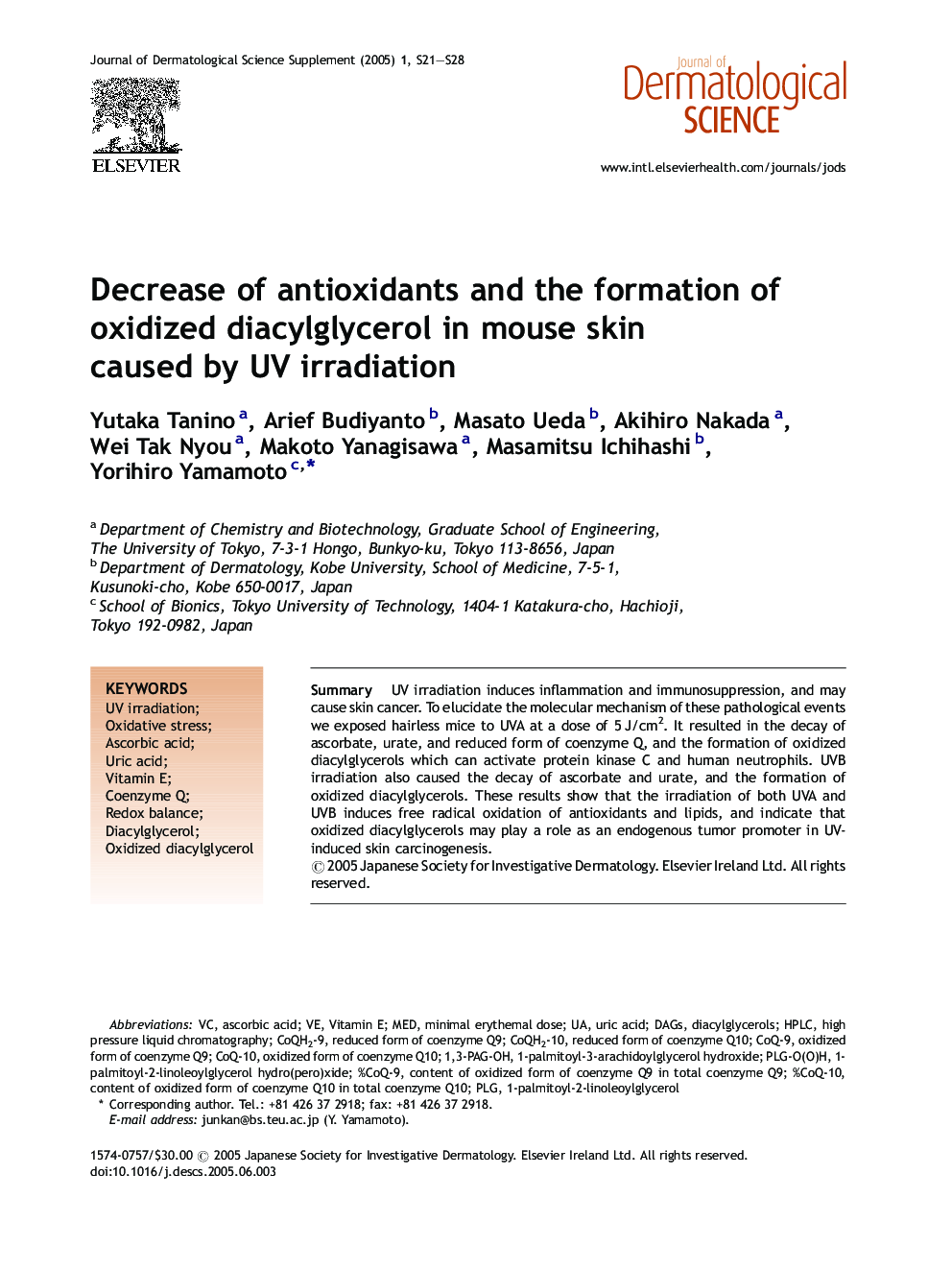| Article ID | Journal | Published Year | Pages | File Type |
|---|---|---|---|---|
| 9230066 | Journal of Dermatological Science Supplement | 2005 | 8 Pages |
Abstract
UV irradiation induces inflammation and immunosuppression, and may cause skin cancer. To elucidate the molecular mechanism of these pathological events we exposed hairless mice to UVA at a dose of 5Â J/cm2. It resulted in the decay of ascorbate, urate, and reduced form of coenzyme Q, and the formation of oxidized diacylglycerols which can activate protein kinase C and human neutrophils. UVB irradiation also caused the decay of ascorbate and urate, and the formation of oxidized diacylglycerols. These results show that the irradiation of both UVA and UVB induces free radical oxidation of antioxidants and lipids, and indicate that oxidized diacylglycerols may play a role as an endogenous tumor promoter in UV-induced skin carcinogenesis.
Keywords
Related Topics
Health Sciences
Medicine and Dentistry
Dermatology
Authors
Yutaka Tanino, Arief Budiyanto, Masato Ueda, Akihiro Nakada, Wei Tak Nyou, Makoto Yanagisawa, Masamitsu Ichihashi, Yorihiro Yamamoto,
